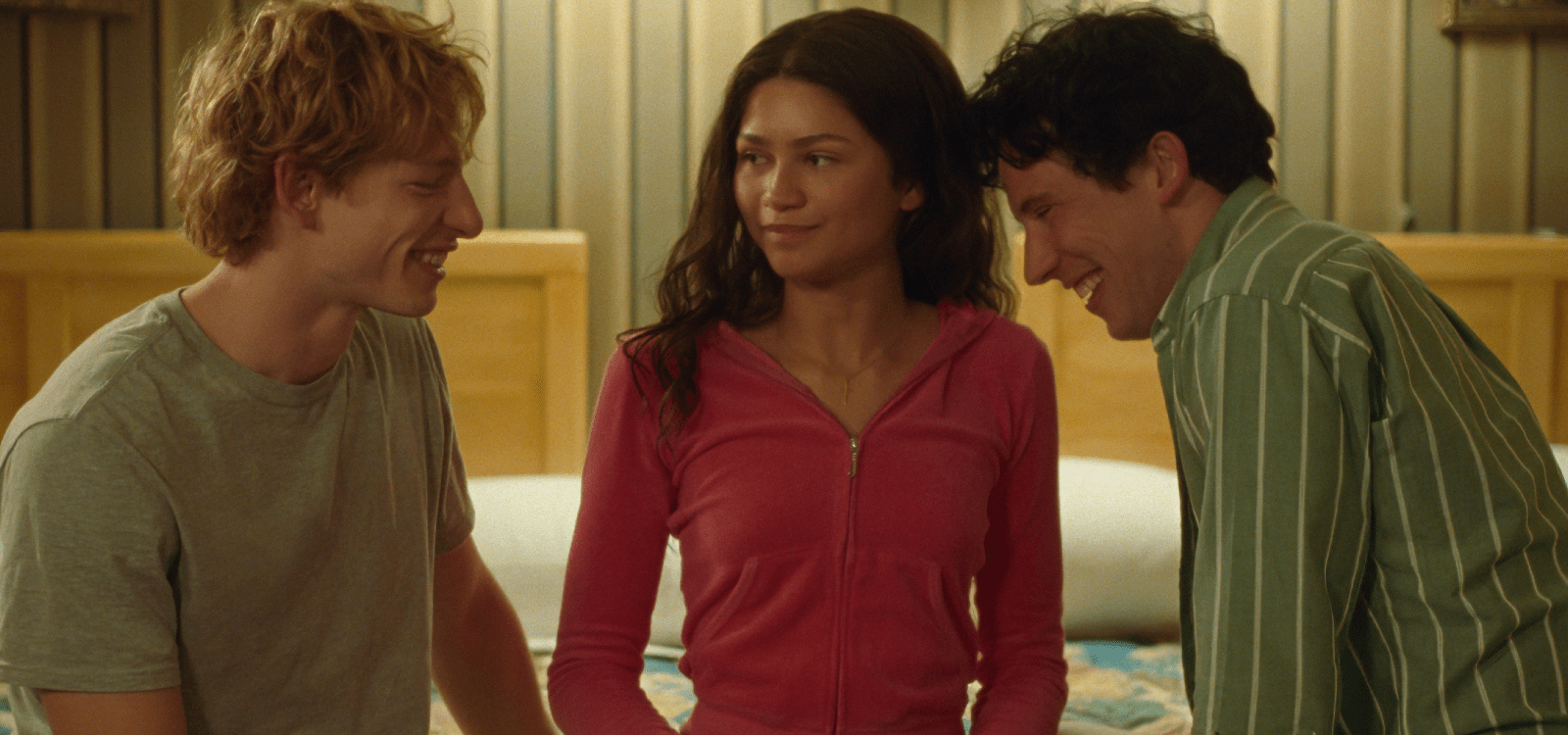Challengers: who dares wins?
Challengers: More than a tennis throuple
As advertised to audiences, it may come as a surprise that Challengers is really not that interested in sex. It’s curious that the marketing for the film has centred largely around one scene which, whilst pivotal in the story, is not the main concern of the film. Instead, Challengers gives us three characters to pick apart and critique, who have tennis in common. The throuple element is so much more than sex and romance (although those things do play an important part in how their relationships unfold and are held in tension).
So let’s have a look at the three characters who really make this film tick. What is it about Tashi Duncan, Art Donaldson, and Patrick Zweig that is so compelling? Individually, each of these characters are complex and difficult in their own ways, and it’s the collision and entanglement of those personalities and egos which creates and drives the tensions and stakes of the story. The way the film structures the very enclosed (even claustrophobic) intimacies of Tashi, Art, and Patrick means we can’t truly see any of them without the others. Tashi needs people to challenge her, but hates not being in control. Art needs a supporter, but hates letting people down. Patrick needs his success to be witnessed, but loves being a maverick.
When we first meet the three of them, I’m not sure we entirely understand who they are (because how could we?) but as the film progresses, though the characters become more familiar I’m still not convinced they become truly accessible or relatable. All we get is a closer look. It might just be that I don’t know what it’s like to be someone like Tashi, Art, or Patrick (although there are some things in each of these characters which I imagine can be sympathised with). I don’t think you necessarily have to relate to them to appreciate the questions being asked and the story being told in Challengers. I think the more important element at work here is the question of how the people in our lives shape us - supporting us, using us, loving us, pitying us - and how we can maybe look at those relationships with fresh eyes.
If there’s one poignant similarity between Challengers and Luca Guadagnino’s masterpiece Call Me By Your Name, it’s the construction of complex relationships which both attract and repel us. By no means is Challengers suggesting that we ought to pursue our passion projects with the same ruthlessness and toxicity as the protagonists do, but it is asking us to think about what might happen. Passion is a slippery slope, it seems, and it makes us vulnerable to relationships which are unhealthy, damaging, and problematic. That’s not to say passion for a craft is always a bad thing, only that how we get there is just as important as the destination. So no, Challengers is not just a tennis throuple. It’s an intense character study on what happens when three unstable people with a shared passion fall into each other’s worlds and have to balance their shared lives with their individual ambitions. Who could possibly win in a game with no real winners?



Comments
Post a Comment